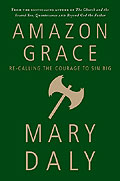Senator Clinton has a long and well documented history of involvement in many of critical foreign policy issues we have confronted and will continue to confront as a nation. Critics can quibble about the details of the health plan she fought for in the 1990s, or whether hers was the decisive or merely an important voice in the Northern Ireland peace efforts, but there can be no denying that she has been in the arena for a generation fighting for what she believes in, gaining experience and developing leadership skills. She has traveled the world and met with international leaders both as the First Lady and as a respected senator on the Senate Armed Services Committee. As NSC director on Africa I experienced her direct positive involvement in U.S.-African relations; it was she, as First Lady who advanced through her own travel, then urged and made possible President Clinton’s historic trip. In the Senate, she has aggressively exercised her oversight responsibility and held the Pentagon’s feet to the fire on plans related to withdrawal from Iraq, shaped legislation requiring reports to Congress, and cosponsored legislation with Senator Byrd to deauthorize the war with Iraq. She has exercised the levers of power because she knows how to do so. That is not a small thing; it is not a campaign theme. It is simply true and goes to the heart of whether she, or anyone, is prepared to be the president to manage at once two wars and a global economic crisis.
Senator Obama is clearly a gifted politician and orator. I disagree profoundly with his transparently political efforts to turn George Bush’s war into Hillary Clinton’s responsibility. I was present in that debate, in Washington, from beginning to end, and Obama was nowhere to be seen. His current campaign aides in foreign policy, Tony Lake and Susan Rice, were also in Washington, but they chose to remain silent during that debate, when it mattered.
Claims of superior intuitive judgment by his campaign and by him are self-evidently disingenuous, especially in light of disclosures about his long associations with the Rev. Jeremiah Wright and Tony Rezko. But his assertions of advanced judgment are also ludicrous when the question of what Obama has accomplished in his four years in the Senate is considered.
As the Chairman of the Senate Foreign Relations Committee subcommittee on Europe, he has not chaired a single substantive oversight hearing, even though the breakdown in our relations with Europe and NATO is harming our operations in Afghanistan. Nor did he take a single official trip to Europe as chairman. This is the sum total of his actions in the most important responsibility he has had in the Senate. What are his actual experiences that reassure us that when the phone rings at 3 a.m. he will know what to do, which levers of power to pull, or which world leaders he can count on?
Obama has stated that he will rely upon his advisers. But how will he know which ones to depend upon and how will he be able to evaluate what they say? Already, one of his chief foreign policy advisers, Samantha Power, has been compelled to resign for, among other indiscretions, honestly revealing on a British television program that Obama’s public position on withdrawal from Iraq is not really his true position, nor does it reflect what he would do. Her gaffe exposed a vein of cynicism on national security. How confident can we be in his judgment? In fact, the hard truth is that he has no such experience.
Obama has tried to have it both ways on the issue of national security. On the one hand, he claims his intuition somehow would make him best equipped to handle the difficult challenges that face the next president. On the other hand, he tries to ridicule and dismiss as relatively insignificant the idea that actual experience with and intimate knowledge of foreign affairs and leaders, the U.S. military, the intelligence community, and the intricacies of diplomacy matter. He has even suggested that talking about the problems of national security amounts to exploitation of "fear." One of Obama’s fervent supporters, a Harvard professor named Orlando Patterson, who has no expertise in foreign policy, wrote absurdly in a New York Times op-ed that the 3 a.m. ad wasn’t about national security at all, but really a subliminal racist attack. Delusions aside, sometimes a discussion about national security is about national security.
See The Daily Howler on the racially-concocted dumb-assery of Patterson. Pro-Obama fans, surrogates, and Villagers have screamed race/race/race so often that the accumulated expulsions require a dumpster-sized pooper scooper. The Clintons have played the race card! Oh, puh-leeze, spare me. Think about it: "[I]ndulging in racial politics would be a sure-fire way for the Clinton campaign to shatter its own coalition," a tactic that defies logic, that would invite political suicide. For someone who allegedly "would do anything to win," the accusation makes zero sense.
What does make sense, what matters in a national security battle with John McCain for the White House:
There will, in fact, be 3 a.m. phone calls for the next president. They are not make believe. I have been there for such calls. The next president cannot be afraid or hesitant of handling the enormous national security crises that President Bush will leave behind. One thing is certain -- the calls will come. Obama has only an abdication of his chief senatorial responsibility as a basis for assessing what his judgment might be if and when the phone rings. Which of his shifting coterie of volatile advisers would he turn to? Will it be the one who repudiated his withdrawal plan, exposing his real intention, prior to being forced to resign? Or will it be those advisers who remained silent until politically convenient -- several years and several thousand lives after the shock and awe invasion, conquest and disastrous occupation of Iraq?
The calls are real and experience is real, too. The campaign might be treated as a game by the media, but those calls are serious, deadly serious.
I'm confident in the intelligence of Obama, that with more experience and demonstrable leadership, he can answer the call. But not yet. Not in 2009, when so many challenges--both economic and foreign crises--will remain in limbo or compounded until the current Incompetent vacates the Oval Office. But Hillary Clinton can answer those 3 a.m. calls. And she will in marked contrast to the disastrous Bush policies that a McCain presidency would continue.
As Wilson said, "She has exercised the levers of power because she knows how to do so." With "two wars and a global economic crisis," now is not the time to test someone unseasoned.
(H/t Lambert)























|